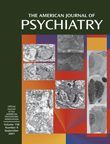Gender-Related Differences in the Characteristics of Problem Gamblers Using a Gambling Helpline
Abstract
OBJECTIVE: The characteristics of male and female gamblers utilizing a gambling helpline were examined to identify gender-related differences. METHOD: The authors performed logistic regression analyses on data obtained in 1998–1999 from callers to a gambling helpline serving southern New England. RESULTS: Of the 562 phone calls used in the analyses, 349 (62.1%) were from male callers and 213 (37.9%) from female callers. Gender-related differences were observed in reported patterns of gambling, gambling-related problems, borrowing and indebtedness, legal problems, suicidality, and treatment for mental health and gambling problems. Male gamblers were more likely than female gamblers to report problems with strategic or “face-to-face” forms of gambling, e.g., blackjack or poker. Female gamblers were more likely to report problems with nonstrategic, less interpersonally interactive forms of gambling, e.g., slot machines or bingo. Female gamblers were more likely to report receiving nongambling-related mental health treatment. Male gamblers were more likely to report a drug problem or an arrest related to gambling. High rates of debt and psychiatric symptoms related to gambling, including anxiety and depression, were observed in both groups. CONCLUSIONS: Individuals with gambling disorders have gender-related differences in underlying motivations to gamble and in problems generated by excessive gambling. Different strategies may be necessary to maximize treatment efficacy for men and for women with gambling problems.



